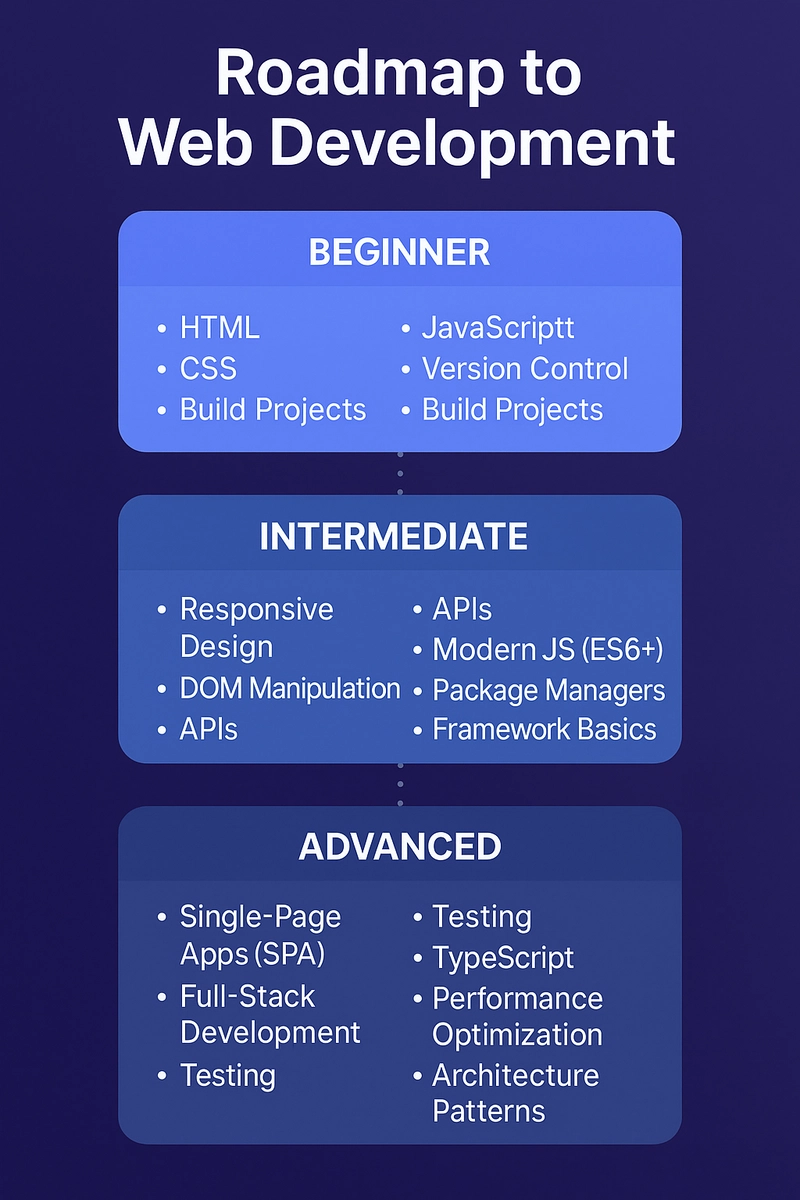Voice Search Optimization: A SEO Game Changer in 2025
Voice search is one of the notable features of SEO that has gained remarkable popularity worldwide. According to the available statistics, voice accounts for 20% of all searches in the Google app. Its growing popularity is due to its convenience, speed, and the increasing usage of voice-based technology. With the growing usage of virtual assistants such as Siri, Alexa, and Google Assistant, users can conveniently perform searches hands-free. Moreover, voice search provides an option to access information quickly. Notably, its capabilities are increasing to enable a better understanding of natural language. As such, it is becoming more intuitive and user-friendly. What is Voice Search? Voice search involves speaking to the search engine of your search query. That means you need not type your query. Instead, speak it out. The search is based on speech recognition technology. Due to this, search engines can understand the user's voice input. And, it can process the input to deliver results, matching the query. How Voice Search Works The application recognizes the user's spoken query through a microphone Speech recognition software converts the voice input into text and interprets the intent of the query The search engine processes the query to retrieve the relevant results The search engine delivers the results Benefits of Voice Search Convenient: Users can search hands-free Faster: Speaking is quicker than typing Accessible: Users with disabilities can search conveniently How Voice Search Differs from Text Search Voice search differs from text search in the following ways: Voice queries are usually longer and phrased as natural conversations. For example, instead of saying “Taxis near me”, users could say, “Where can I find taxis?” A significant percentage of voice searches have local intent, such as “What are the best cab service providers near me” Optimizing for Voice Search–the Best Methods There has been a remarkable growth in the popularity of virtual assistants like Alexa, Siri, Google Assistant, and Cortana. As such, people are increasingly preferring hands-free, conversational searches. That is why optimizing your content for voice search has become essential to make websites appear in search engine results. Here are the best methods for optimizing your website for voice search: 1. Determine the User's Intent This is the first thing to do in your voice search optimization campaign. Understand the intent behind voice searches. Usually, users tend to ask to-the-point questions. For example, a user might ask, “ How to book a taxi in California?”--showing users looking for direct answers. Therefore, determine the types of questions users might ask. You can use tools like Answer the Public or Google Trends to find such questions. 2. Use Long Tail Keywords As users ask specific questions for searching, use natural and long-tail keywords. For example, instead of “Cabs in California”, use “How can I book cabs in California?” That way, you can align your keywords with search intent. 3. Include a FAQ Section Including a FAQ section on the webpage can be a good tactic to optimize a web page for voice search. This is because users mostly ask specific questions. Also, structure straightforward answers to the questions. In addition, using schema markup can be a good idea. That can enhance the visibility of your FAQs in search results. 4. Optimize for Local SEO Usually, a significant percentage of voice searches corresponds to nearby locations. That is why optimize for local SEO. Also, ensure that your Google My Business Profile is accurate and up-to-date. That can allow your business to appear in voice search results. 5. Speed Up Your Website Users searching with voice expect quick delivery of answers. That is why the website must load fast. Otherwise, the rankings could be affected by slow-loading. You can use tools, such as Google PageSpeed Insights, to identify speed issues. Compressing images, caching the browser, or using CDN can help speed up slow websites. 6. Optimize for Mobile Usually, most people do voice searches on their mobile devices. That is why, you must not ignore the need to make your website mobile-friendly with responsive design and easy navigation. 7. Use Natural Language in Content You must use conversational language in content to optimize for voice searches. Remember, incorporating natural speech patterns into the content is essential. However, do not use very formal language. Compose the content as if you are speaking to someone. Remember, the natural flair is essential. That also makes content more engaging. 8. Use Schema Markup Use schema markup for FAQs and reviews. That can help search engines better understand the context of the website content. As a result, it can deliver relevant results against voice searches. You can u

Voice search is one of the notable features of SEO that has gained remarkable popularity worldwide. According to the available statistics, voice accounts for 20% of all searches in the Google app. Its growing popularity is due to its convenience, speed, and the increasing usage of voice-based technology. With the growing usage of virtual assistants such as Siri, Alexa, and Google Assistant, users can conveniently perform searches hands-free. Moreover, voice search provides an option to access information quickly. Notably, its capabilities are increasing to enable a better understanding of natural language. As such, it is becoming more intuitive and user-friendly.
What is Voice Search?
Voice search involves speaking to the search engine of your search query. That means you need not type your query. Instead, speak it out. The search is based on speech recognition technology. Due to this, search engines can understand the user's voice input. And, it can process the input to deliver results, matching the query.
How Voice Search Works
The application recognizes the user's spoken query through a microphone
Speech recognition software converts the voice input into text and interprets the intent of the query
The search engine processes the query to retrieve the relevant results
The search engine delivers the results
Benefits of Voice Search
Convenient: Users can search hands-free
Faster: Speaking is quicker than typing
Accessible: Users with disabilities can search conveniently
How Voice Search Differs from Text Search
Voice search differs from text search in the following ways:
Voice queries are usually longer and phrased as natural conversations. For example, instead of saying “Taxis near me”, users could say, “Where can I find taxis?”
A significant percentage of voice searches have local intent, such as “What are the best cab service providers near me”
Optimizing for Voice Search–the Best Methods
There has been a remarkable growth in the popularity of virtual assistants like Alexa, Siri, Google Assistant, and Cortana. As such, people are increasingly preferring hands-free, conversational searches. That is why optimizing your content for voice search has become essential to make websites appear in search engine results.
Here are the best methods for optimizing your website for voice search:
1. Determine the User's Intent
This is the first thing to do in your voice search optimization campaign. Understand the intent behind voice searches. Usually, users tend to ask to-the-point questions. For example, a user might ask, “ How to book a taxi in California?”--showing users looking for direct answers. Therefore, determine the types of questions users might ask. You can use tools like Answer the Public or Google Trends to find such questions.
2. Use Long Tail Keywords
As users ask specific questions for searching, use natural and long-tail keywords. For example, instead of “Cabs in California”, use “How can I book cabs in California?” That way, you can align your keywords with search intent.
3. Include a FAQ Section
Including a FAQ section on the webpage can be a good tactic to optimize a web page for voice search. This is because users mostly ask specific questions. Also, structure straightforward answers to the questions.
In addition, using schema markup can be a good idea. That can enhance the visibility of your FAQs in search results.
4. Optimize for Local SEO
Usually, a significant percentage of voice searches corresponds to nearby locations. That is why optimize for local SEO. Also, ensure that your Google My Business Profile is accurate and up-to-date. That can allow your business to appear in voice search results.
5. Speed Up Your Website
Users searching with voice expect quick delivery of answers. That is why the website must load fast. Otherwise, the rankings could be affected by slow-loading. You can use tools, such as Google PageSpeed Insights, to identify speed issues. Compressing images, caching the browser, or using CDN can help speed up slow websites.
6. Optimize for Mobile
Usually, most people do voice searches on their mobile devices. That is why, you must not ignore the need to make your website mobile-friendly with responsive design and easy navigation.
7. Use Natural Language in Content
You must use conversational language in content to optimize for voice searches. Remember, incorporating natural speech patterns into the content is essential. However, do not use very formal language. Compose the content as if you are speaking to someone. Remember, the natural flair is essential. That also makes content more engaging.
8. Use Schema Markup
Use schema markup for FAQs and reviews. That can help search engines better understand the context of the website content. As a result, it can deliver relevant results against voice searches. You can use a tool, such as Google’s Rich Results Test Tool, to test your structured data.
9. Optimize for "Near Me" Searches
Usually, voice searches involve location-based queries. Therefore, use the phrase “near me” in your content. However, use it naturally.
10. Monitor Performance
Track the performance of your voice search campaign regularly. Remember, it is a continuous process, not a static one. Use tools like Google Analytics and Google Search Console to identify traffic vis-a-vis specific voice queries. In addition, update your content periodically to keep it relevant and fine-tune it for voice searches.
What to Avoid in Voice Search Optimization
Remember, voice search optimization is a tactical process. As such, carefulness is essential to derive the best performance. There are a few things to avoid while optimizing for voice. If you do not do so, your voice search optimization could fail.
Here are the things to avoid:
Keyword Stuffing
Do not stuff your content with long-tail keywords. That can deviate from the natural language patterns and disrupt readability. If you optimize your content overly, the page might not rank in higher search engine results. Again, unnatural keywords might result in lower rankings because search engines prioritize user experience.
Undermining Mobile Optimization
If you do not optimize for mobile, rankings could suffer as most voice searches are done on mobile devices. Users might leave your site quickly if it is not friendly to mobile devices. As a result, bounce rates will increase, negatively impacting your SEO campaign.
Neglecting Page Speed
The speed of loading plays a crucial role in successful voice searches. If the loading speed of your website is slow, users might leave it because they expect quick delivery of results. Moreover, search engines penalize slow-loading websites, negatively impacting SEO campaigns.
Lengthy FAQ Answers
Lengthy FAQ answers could negatively impact SEO. Users mostly prefer short and to-the-point answers. Therefore, structure the answers short of 40-50 words. Moreover, ensure they are to the point.
Neglecting Local SEO
Your website will not rank for location-based voice searches if you do not optimize it for local SEO. Therefore, structure voice search queries with the phrase “near me”.
Using Complex Language
Usually, users prefer simple and easy-to-understand answers. Therefore, do not use complex languages or technical terms. Instead, use simple language to mimic natural speech.
Ignoring User Intent
Do not focus on using the right keywords alone. Emphasis on responding to the intent behind voice search queries. That will render your content relevant. When users ask for specific information, they expect the appropriate answers. Failing to provide such results could result in poor engagement.
Undermining Local Listings
Search engines might not provide a high rank to your website if you do not maintain accurate local business listings. Therefore, update and maintain an accurate Google My Business Profile and other local directories. Remember, inaccurate local listings can negatively impact SEO results.
Neglecting Featured Snippets
Voice search might not deliver the intended results if you do not format content to target featured snippets, such as bullet points, lists, or tables. Remember, search engines often structure answers to voice queries from featured snippets. As such, search engines could ignore your content if it is without featured snippets.
Ignoring HTTPS
Search engines prioritize secure websites. Therefore, ensure HTTPS on your website. Otherwise, its credibility will be lower, negatively impacting the ranking potential. A website without HTTPS is likely to attack lower trust from search engines and users.
Failing to Update Content
If you do not update your content, it will get outdated with time. In that case, search engines are less likely to consider such content for ranking. Therefore, update your content frequently. Moreover, users want up-to-date information.
Conclusion
Voice search has the potential to be a game-changer in 2025. It is likely to transform how people access information over the internet. With the growing popularity of voice searches, consumer behavior is likely to transform. Moreover, it can become a crucial component of digital strategies due to its integration with conversational AI, and local search. Therefore, businesses can leverage the growing trend to improve customer experience.













































































































































































![[The AI Show Episode 144]: ChatGPT’s New Memory, Shopify CEO’s Leaked “AI First” Memo, Google Cloud Next Releases, o3 and o4-mini Coming Soon & Llama 4’s Rocky Launch](https://www.marketingaiinstitute.com/hubfs/ep%20144%20cover.png)

















































































































































































![Rogue Company Elite tier list of best characters [April 2025]](https://media.pocketgamer.com/artwork/na-33136-1657102075/rogue-company-ios-android-tier-cover.jpg?#)






























































































.webp?#)



























































































![Here’s the first live demo of Android XR on Google’s prototype smart glasses [Video]](https://i0.wp.com/9to5google.com/wp-content/uploads/sites/4/2025/04/google-android-xr-ted-glasses-demo-3.png?resize=1200%2C628&quality=82&strip=all&ssl=1)














![New Beats USB-C Charging Cables Now Available on Amazon [Video]](https://www.iclarified.com/images/news/97060/97060/97060-640.jpg)

![Apple M4 13-inch iPad Pro On Sale for $200 Off [Deal]](https://www.iclarified.com/images/news/97056/97056/97056-640.jpg)





































































































































